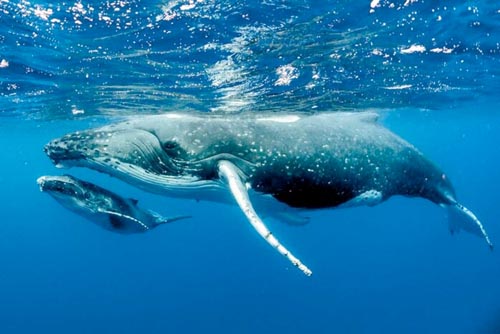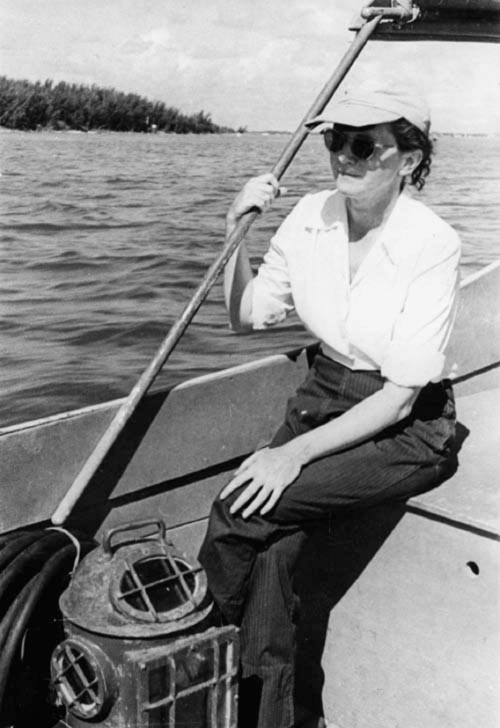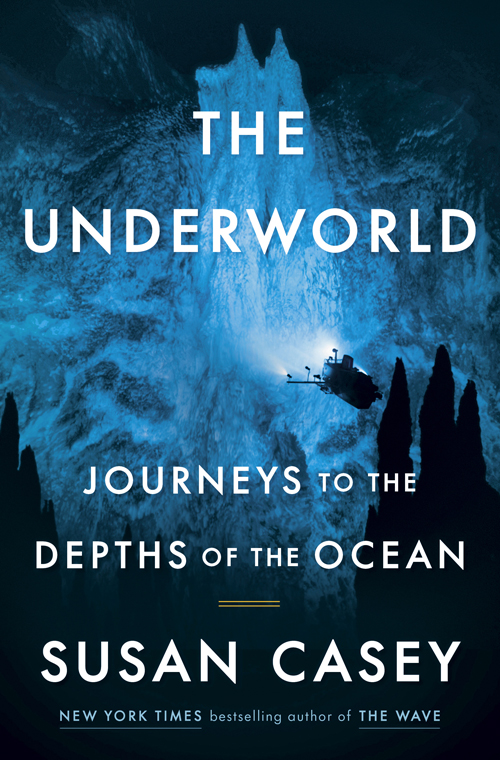 | | | In the transition from summer to fall, our September issue of the RCC Coasts and Oceans Observer reflects on what has been a historic month for ocean conservation. On September 22nd, the United Nations agreed to a treaty to protect biodiversity in the high seas, which account for two-thirds of the planet’s oceans. As the treaty awaits ratification, the High Seas Alliance, a group of non-governmental organizations, has already identified target regions to establish marine-protected areas. While the UN high seas treaty points toward a brighter future for ocean conservation, September has also highlighted continuing challenges for coastal and marine ecosystems. In the months before Hurricane Idalia made landfall in Florida, the water temperatures in the Gulf of Mexico reached over 100 degrees Fahrenheit. These above average temperatures in the Gulf caused Idalia to quickly intensify from a tropical storm to a Category 4 hurricane at its peak before hitting Florida as a Category 3 storm.  Warming ocean temperatures have had impacts far beyond storm intensity. Higher ocean temperatures and decreasing sea ice have likely contributed to declining snow crab populations, placing stress on crab fishers in Alaska. Ocean heating, among other factors like plastic pollution and boat strikes, has also led to increased whale deaths in the northeast. And, while scientists and conservationists have expressed major concerns about the impacts of rising Gulf temperatures on coral reefs, this unprecedented heat also severely threatens fish, anemones, sea grasses, and other organisms, putting entire ecosystems at risk. Warming ocean temperatures have had impacts far beyond storm intensity. Higher ocean temperatures and decreasing sea ice have likely contributed to declining snow crab populations, placing stress on crab fishers in Alaska. Ocean heating, among other factors like plastic pollution and boat strikes, has also led to increased whale deaths in the northeast. And, while scientists and conservationists have expressed major concerns about the impacts of rising Gulf temperatures on coral reefs, this unprecedented heat also severely threatens fish, anemones, sea grasses, and other organisms, putting entire ecosystems at risk.  The Gulf of Mexico is also under threat from offshore oil drilling. A federal judge in Louisiana ordered the Department of the Interior to expand offshore oil and gas leases by millions of acres. The Biden-Harris Administration had reduced the sale to protect endangered whales who would suffer from this exploitation of the ocean. The Gulf of Mexico is also under threat from offshore oil drilling. A federal judge in Louisiana ordered the Department of the Interior to expand offshore oil and gas leases by millions of acres. The Biden-Harris Administration had reduced the sale to protect endangered whales who would suffer from this exploitation of the ocean.
In the face of numerous threats to the marine environment and coastal communities, projects and initiatives across the country provide a beacon of hope. The Biden-Harris Administration continues to allocate funding for the coasts, recently announcing $45 million in grants for coastal resilience specifically in tribal and marginalized communities. Additionally, it was recently announced that NOAA and the Santa Ynez Chumash will co-manage a new marine sanctuary off the coast of California. Conservation projects at the state level also show promise. The Georgia Department of Natural Resources and Atlanta’s metro system have partnered to use old railcars to build artificial reefs. In the private sector, new fishing companies are developing innovative technologies to reduce bycatch and seabed dredging, and make the industry more sustainable. In a time when many headlines are dominated by climate catastrophes and obstacles to change, projects like these serve as an important reminder of our progress so far and the work ahead. In our “Book Reviews” section, RCC President Bob Musil’s dubs Susan Casey the next Rachel Carson. Bob explores the connections between Casey’s lyrical prose and exploration of the ocean environment in her latest book, The Underworld: Journeys to the Depth of the Ocean, to Carson’s pioneering ocean books like Under the Sea-Wind over 80 years earlier. When Rachel Carson studied the ocean decades ago, she was aware of climate change and its effects, including sea level rise, glacial melt, and rising ocean temperatures. As we continue to grapple with these same challenges, it is crucial to remember her message that all life and we humans are deeply connected to the ocean. We have a responsibility to protect it. | | | | | | | |  Emma Brentjens is the co-lead of the RCC Coasts and Oceans program. She is a Master of Environmental Management student at Duke University studying Ecosystem Science and Conservation and Community-based Environmental Management. Emma Brentjens is the co-lead of the RCC Coasts and Oceans program. She is a Master of Environmental Management student at Duke University studying Ecosystem Science and Conservation and Community-based Environmental Management. | | | | | | Hurricane Idalia’s Explosive Power Comes from Abnormally Hot Oceans By burning fossil fuels, humans force the oceans to soak up the heat equivalent of a Hiroshima-size bomb, over and over again. Of all the astonishing facts about our blithe remaking of the world’s climate system, the most astonishing might be this: if oceans didn’t cover seventy per cent of our planet, we would have increased the average temperature to about a hundred and twenty-two degrees Fahrenheit. | | | | | | | | Five Amazing Ocean Sites to Make the First Protected High Seas Areas From the Sargasso Sea to the Costa Rica thermal dome, scientists are identifying key diversity hotspots to safeguard under a new UN treaty From 20 September, the UN’s high seas treaty will at last be open for signatures – an important moment that starts the process for nations to ratify it into their own laws. At least 60 countries must do so for the treaty to come into force. Scientists hope that it will finally allow marine protected areas (MPAs) in the high seas to be established. | | | | | | | | Seventy-plus Nations Sign Historic High Seas Treaty, Paving Way For Ratification Seventy-six countries and the European Union have now signed the high seas treaty, signaling interest in ratifying the agreement designed to protect marine biodiversity in international waters. The signing of the treaty is a significant step in a global effort to protect the high seas, areas of the ocean beyond national borders, which have historically remained ungoverned and unprotected. The high seas encompass two-thirds of the world’s oceans, but only about 1% currently have any kind of protected status. | | | | | | | | Tribal Management Proposed for Chumash Marine Sanctuary The first Chumash-led nomination of a marine sanctuary reached one of its final phases on Friday, when the draft designation was released by the National Oceanic and Atmospheric Administration (NOAA). Set among 5,617 square miles of ocean that stretches along 134 miles of coastline from Montaña de Oro in San Luis Obispo to the Gaviota Coast in Santa Barbara, the Chumash Heritage National Marine Sanctuary will also be the first to be co-led by tribal leaders and government agencies. | | | | | | | | New Federal Rule Puts 2.5 Million Acres of Wetlands in Peril The lawsuit an Idaho couple filed in 2008 against the Environmental Protection Agency arguing that wetlands on their property were not protected under “waters of the United States” has resulted in federal protections being stripped from millions of acres of isolated wetlands. The EPA and Department of the Army, which oversees the Corps of Engineers, issued Tuesday their final rule amending the “Revised Definition of ‘Waters of the United States’” published Jan. 18, 2023. | | | | | | | | As Japan Releases Fukushima Wastewater Into the Ocean, Pacific Islanders Are Reminded of a Never-ending Nuclear Legacy Indigenous communities worry the decision will compound existing health disparities Danity Laukon was sitting in her bedroom in her two-bedroom flat in Suva, Fiji, when she got the call. It was November 2021, and her dad, more than 1,800 miles away at her home in Majuro in the Marshall Islands, had died after a battle with diabetes. He was 50 years old. | | | | | | | | Decades of Water Quality Safeguards Erased, Advocates Say The final rule ending federal protections for isolated wetlands that the Environmental Protection Agency and Department of the Army issued last week is another setback in the more than 40-year battle to protect North Carolina’s water quality. The amendment to the final “Revised Definition of ‘Waters of the United States’” rule published in the Federal Register in January reflects the Supreme Court’s May 25, 2023, Sackett v. EPA decision that only wetlands with a “continuous surface connection” to waterbodies are considered “waters of the United States.” | | | | | | | | | | | | Scientists Cryopreserve and Revive Coral Fragments in a World First for Conservation The new freezing technique could reinvigorate corals suffering from warming oceans—or even preserve human organs in the future For the first time ever, researchers have succeeded in cryopreserving and reviving pieces of adult coral—a breakthrough that could eventually help save reefs struggling from the effects of climate change. | | | | | | | | Ocean Scientists Concerned Over Uptick of Whale Deaths on Northeast Coasts There's been a common sight on Northeast beaches this summer: an alarmingly rise in whale carcasses washing in from the Atlantic Ocean. Scientists are becoming increasingly concerned over the number of dead whales, an animal that provides a lens into the general condition of the ocean and the beings that reside there, Chris Robbins, associate director of science for Ocean Conservancy, an environmental nonprofit, told ABC News. | | | | | | | | Jimmy Buffett Used His Influence To Help The Environment, Save The Manatees Jimmy Buffett became an icon for his beach themed music, turning it into a billion dollar empire. His music captured the essence of the Florida Keys, but he also became a champion of the endangered manatee and other conservation issues. Buffett, who died on September 1 of skin cancer at the age of 76, is mostly known for his famous songs like Margaritaville, Come Monday, and Five O’Clock Somewhere. | | | | | | | | Climate Change is Destroying Reefs, But the Effects Are More Than Ecological – Coral’s Been Woven Into Culture and Spirituality for Centuries Hurricane Idalia made landfall on Florida’s Gulf Coast on Aug. 30, 2023, bringing surging seas and winds over 100 mph. Meanwhile, another climate emergency has been unfolding along Florida’s coast this summer: a marine heat wave bleaching corals throughout the world’s third-largest barrier reef. | | | | | | | | MARTA Partners With Georgia DNR to Transform Old Railcars Into Marine Reefs MARTA is partnering with the Georgia Department of Natural Resources (DNR) Reef Project to contribute railcars from MARTA’s original fleet. The old railcars are being retired as the new CQ400 carriages are added to the rolling stock. The Reef Project deploys large objects to the bottom of the ocean that over time develop into reef habitats for marine wildlife. | | | | | | | | Wind Opponents Spread Myth About Dead Whales They claim the offshore wind is responsible for a spike in whale deaths. Experts don’t buy it, but interest groups backed by fossil fuel money are spreading false information. Activists and groups that oppose offshore wind energy have hit upon a new theme to recruit environmentally minded people for their campaign. They are linking offshore wind development to a sight and a smell that no one likes: a rotting humpback whale carcass washed up on a beach or bobbing with the current as seagulls pick at its flesh. | | | | | | | | Companies Are Claiming to Be ‘plastic neutral.’ Is it Greenwashing? Plastic credits can help fund waste cleanup, but they can also justify making more plastic. For years, companies have been trying to offset their greenhouse gas emissions with carbon credits. Now, they want to do the same thing for their plastic pollution. A growing number of companies are claiming “plastic neutrality” through the purchase of so-called plastic credits, tradable units that typically each represent 1 metric ton of plastic waste that’s been removed from the environment. | | | | | | | | Alaska Fishers Fear Another Bleak Season as Crab Populations Dwindle in Warming Waters Crab fishermen in Alaska have been scrambling to stay afloat after two years of the Bering Sea fishery being closed or severely curtailed due to plummeting crab numbers Gabriel Prout worked four seasons on his father's crab boat, the Silver Spray, before joining his two brothers in 2020 to buy a half-interest plus access rights for a snow crab fishery that's typically the largest and richest in the Bering Sea. | | | | | | | | | | Fishing Startups Are Making the Industry More Sustainable by Repelling Bycatch, Recycling Nets, and Tackling Dredging — But They Need More Cash to Stay Afloat Daniel Watson's company, SafetyNet Technologies, has nearly run out of money six times. When he founded the London-based business — which works on ways to make fishing more sustainable — in 2011, funding for ocean conservation seemed nonexistent. | | | | | | | | It’s Not Just Coral. Extreme Heat is Weakening Entire Marine Ecosystems in Florida. Anemones, sponges, and jellyfish are bleaching throughout the Everglades amid record temperatures. It's a troubling sign for Florida Bay and beyond. Summer afternoons on Florida Bay are a wonder. The sky, bright blue and dotted with clouds, meets the glassy water in a blur of blue that melts away any sign of the horizon. Wading birds rustle in the verdant branches of mangroves. | | | | | | | | Keeping Track: $220M for Ocean Observatories Initiative The U.S. National Science Foundation has awarded a coalition of academic and oceanographic research organizations including Oregon State University a five-year, $220 million cooperative agreement to continue operating and maintaining the Ocean Observatories Initiative. Woods Hole Oceanographic Institution leads the consortium, which also includes the University of Washington. | | | | | | | | Judge Blocks Government Plan to Scale Back Gulf Oil Lease Sale to Protect Whale Species A federal judge has ordered the Interior Department to expand next week’s scheduled sale of of Gulf of Mexico oil and gas leases by millions of acres, rejecting a scaled-back plan announced last month by the Biden administration as part of an effort to protect an endangered whale species. The Biden administration on Friday filed notice that it was appealing the order issued Thursday night in Lake Charles, Louisiana, by U.S. District Judge James David Cain Jr. | | | | | | | | Stunning Undersea Photography: 20 Winners Of Ocean Photographer Of The Year From thousands of drone, underwater and coastal images submitted by the world’s best ocean photographers, Ocean Photographer of the Year 2023 has announced the overall and the different category winners of its prestigious awards. The Ocean Photographer of the Year has a simple mission: to shine a light on the beauty of our oceans and the threats they face. | | | | | | | | Is Susan Casey the Next Rachel Carson? Susan Casey, The Underworld:
Journeys to the Depth of the Ocean (Doubleday, 2023)   Is Susan Casey the next Rachel Carson? Yes. Her latest book, The Underworld: Journeys to the Depth of the Ocean, establishes her as the latest in the lineage of great ocean interpreters that began with Carson’s Under the Sea-Wind (1941,1952). Carson, the modern scientific and literary pioneer who helped generations after World War II to love the ocean and discover the environment is incomparable. But Carson and Casey are of entirely different eras – of wooden tennis rackets versus those of graphite and titanium. And ocean exploration, the technology available for it, and our knowledge of the sea has been totally transformed in today’s age of the Anthropocene and climate crisis. Aided by satellites, advanced computers and imaging, Susan Casey is able to dive in space-age submersibles to the deepest parts of the ocean that Carson could only imagine and write about. Like Rachel Carson, she describes her experiences in powerful, pictorial prose, but she is also able to transmit and bring back color photos and film of the otherworldly denizens of the deep. Is Susan Casey the next Rachel Carson? Yes. Her latest book, The Underworld: Journeys to the Depth of the Ocean, establishes her as the latest in the lineage of great ocean interpreters that began with Carson’s Under the Sea-Wind (1941,1952). Carson, the modern scientific and literary pioneer who helped generations after World War II to love the ocean and discover the environment is incomparable. But Carson and Casey are of entirely different eras – of wooden tennis rackets versus those of graphite and titanium. And ocean exploration, the technology available for it, and our knowledge of the sea has been totally transformed in today’s age of the Anthropocene and climate crisis. Aided by satellites, advanced computers and imaging, Susan Casey is able to dive in space-age submersibles to the deepest parts of the ocean that Carson could only imagine and write about. Like Rachel Carson, she describes her experiences in powerful, pictorial prose, but she is also able to transmit and bring back color photos and film of the otherworldly denizens of the deep. When William Beebe first explored the deep ocean in a cast-iron bathysphere in the early nineteen thirties and made it cool with radio broadcasts and a best-selling book called Half-Mile Down], he peered at new species through a small porthole and had to have an artist provide color paintings to accompany his text. Read more | | | | | |  The Rachel Carson Council Depends on Tax-deductible Gifts From Concerned Individuals Like You. Please Help If You Can. The Rachel Carson Council Depends on Tax-deductible Gifts From Concerned Individuals Like You. Please Help If You Can. | | | | | | | |  Sign Up Here to Receive the RCC E-News and Other RCC Newsletters, Information and Alerts. Sign Up Here to Receive the RCC E-News and Other RCC Newsletters, Information and Alerts. | | | | | | | | | | | |